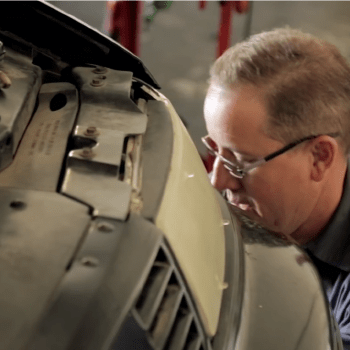Customer Service
Today's cars, light trucks, and sport-utility vehicles are high-tech marvels with digital dashboards, oxygen sensors, electronic computers, unibody construction, and more. They run better, longer, and more efficiently than models of years past.
When it comes to repairs, some things stay the same.
The following tips should help you along the way:
Do your homework before taking your vehicle in for repairs or service.
Know Your Car
Read the owner's manual to learn about the vehicle's systems and components.
Get Proper Services
Follow the recommended service schedules.
Log All Repair / Services
Keep a log of all repairs and service.
Use all of your senses to inspect your car frequently.
When you think about it, you know your car better than anyone else. You drive it every day and know how it feels and sounds when everything is right. So don't ignore its warning signals.

Check for:
- Unusual sounds, odors, drips, leaks, smoke, warning lights, gauge readings.
- Changes in acceleration, engine performance, gas mileage, fluid levels.
- Worn tires, belts, hoses.
- Problems in handling, braking, steering, vibrations.
- Note when the problem occurs.
- Is it constant or periodic?
- When the vehicle is cold or after the engine has warmed up?
- At all speeds? Only under acceleration? During braking? When shifting?
- When did the problem first start?
Once you are at our location, communicate your findings.
What are the symptoms?
Be prepared to describe the symptoms.
Know what the symptoms are!
Carry a written list of the symptoms that you can give us.
Trust the expert.
Resist the temptation to suggest a specific course of repair.
Just as you would with your physician, tell us where it hurts and how long it's been that way, but let the technician diagnose and recommend a remedy.
Stay involved. . . Ask questions.
Ask Questions
Ask as many questions as you need. Do not be embarrassed to request lay definitions.
Be Patient
Don't rush the technician to make an on-the-spot diagnosis. You may ask to be called and apprised of the problem, course of action, and costs before work begins.
Understand
Before you leave, be sure you understand all shop policies regarding labor rates, guarantees, and acceptable methods of payment.
Leave a Phone Number
Leave a telephone number where you can be called.



